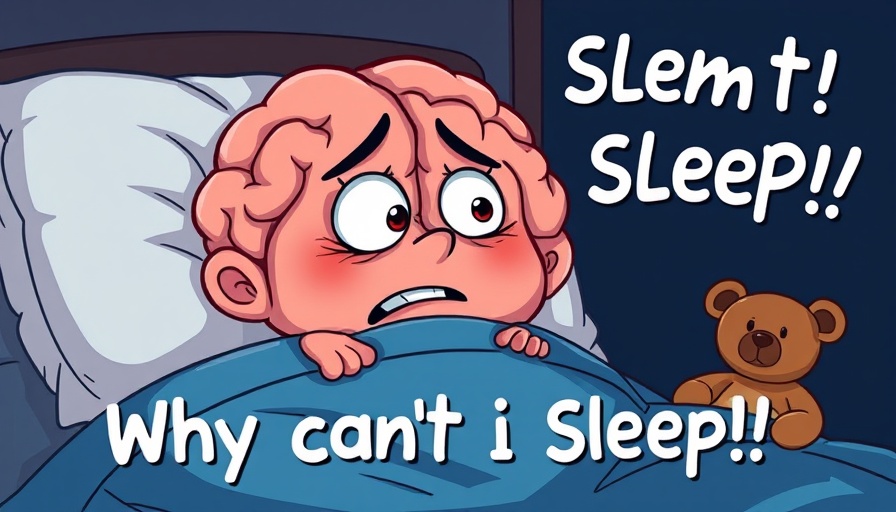
Understanding the Sleep Challenges of ADHD
For many individuals diagnosed with Attention Deficit Hyperactivity Disorder (ADHD), sleep can often feel like an elusive goal. This struggle isn't merely a matter of being tired; it can contribute to a deeper cycle of challenges that impact daily functioning, relationships, and overall mental health. Recent studies indicate that those with ADHD experience more sleep-related difficulties, with symptoms such as insomnia, restless legs, and an inability to quiet the racing thoughts typically associated with the condition. Understanding these factors is essential for those affected by ADHD—especially teachers and education leaders, who may find their professional lives significantly impacted by sleep deprivation. With the right strategies, however, effective management is possible!
Why Sleep is Crucial for ADHD Management
Quality sleep is essential not just for overall health, but particularly for those managing ADHD. Sleep deprivation can exacerbate existing symptoms like inattention, impulsivity, and hyperactivity. It also influences emotional regulation, making it critical for individuals, especially educators, who need to maintain a calm and focused classroom environment. The brain thrives on rest, allowing it to consolidate memories and process complex information effectively. This is especially important for teachers who must engage and motivate their students daily.
Practical Strategies to Enhance Sleep Quality
Implementing simple yet effective strategies can significantly improve sleep quality for those with ADHD. Establishing a consistent bedtime routine is crucial; this might include winding down activities such as reading, gentle stretching, or meditation to signal the body that it's time to rest. Incorporating relaxation techniques, such as deep-breathing exercises or guided imagery, can also be beneficial. Another notable approach includes minimizing screen time an hour before sleep, as blue light emitted from devices can interfere with melatonin production—making it harder to fall asleep.
Real-Life Stories: Success in the Classroom
Understanding how individuals have navigated sleep challenges successfully can inspire others. Take, for instance, the story of Jennifer, a middle school teacher who discovered that setting aside 30 minutes every evening for a tech-free routine drastically improved her sleep quality. By sharing her experiences with colleagues, she sparked a movement toward healthier practices for their mutual benefit. Through collaboration, teachers in her district began adopting various relaxation techniques before bed, resulting in a measurable decrease in reported stress and an increase in productivity during school hours!
Understanding Different Perspectives
While much of the conversation around sleep and ADHD focuses on individuals with the disorder, it's also important to frame this within the context of educators and their vital role. Teachers can often feel overwhelmed, leading to their own sleep disturbances. By understanding these dynamics, schools can implement policies that prioritize the well-being of educators alongside their students.
Future Trends: Holistic Approaches to ADHD
The future of ADHD management is leaning increasingly toward holistic practices that integrate mindfulness and self-care into the education system. As awareness grows around the importance of sleep, it's likely that more schools will adopt holistic health programs to help teachers and students alike. Educational institutions can also facilitate workshops aimed at improving sleep hygiene, thereby fostering an environment conducive to learning.
In conclusion, battling sleep challenges can feel overwhelming, particularly for those with ADHD. However, by utilizing effective strategies, creating supportive communities, and fostering future-centric learning approaches, significant improvements in sleep quality and overall well-being can be achieved. Education leaders, in particular, have the unique opportunity to shape these discussions and drive positive change in their environments!
If you or someone you know is struggling with sleep due to ADHD, consider these insights and explore implementing some of the tips shared. Transforming sleep habits can lead to lasting positive changes in both personal and professional realms.
 Add Row
Add Row  Add
Add 




 Add Row
Add Row  Add
Add 

Write A Comment